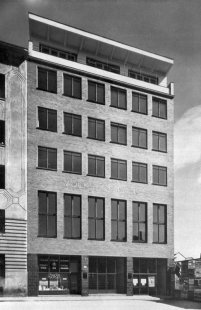
Lecture Brno Jewish Architects 1919-1939
24.9.2012 at 17:00, lecture hall of the Dietrichstein Palace, Zelný trh 8, Brno
During the twenty years between the world wars, Jewish architects - mostly in collaboration with Jewish builders and construction companies - significantly influenced the face of Brno. Ernst Wiesner was even a key figure for Brno's architecture, as he was a pioneer and the first implementer of purist modern buildings in the city. Subsequently, Otto Eisler, Heinrich Blum, Endre Steiner, Zikmund Kerekes, Max Tinter, and other Jewish architects carried out a remarkable series of buildings - especially for housing - which featured formal architectural means distinct from Brno's "white functionalism." This created a distinctive current of modern architecture, of which Brno was the center, and which the lecture will address.
The lecture is part of the accompanying program for the exhibition In Struggle and Suffering.
Speaker: Prof. Ing. Arch. Petr Pelčák
Admission: 60, 40 CZK
The lecture is part of the accompanying program for the exhibition In Struggle and Suffering.
Speaker: Prof. Ing. Arch. Petr Pelčák
Admission: 60, 40 CZK
The English translation is powered by AI tool. Switch to Czech to view the original text source.

0 comments
add comment









